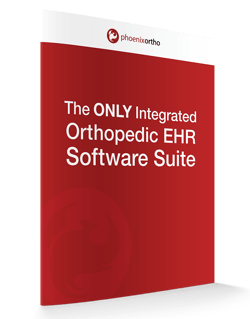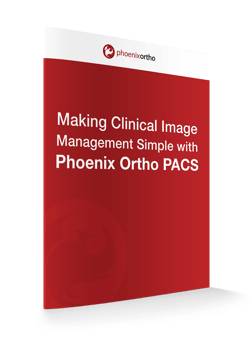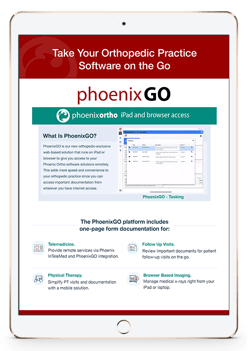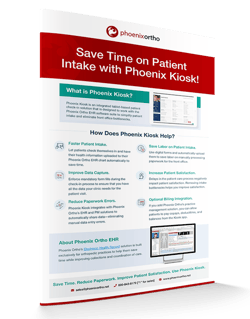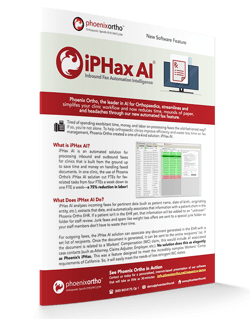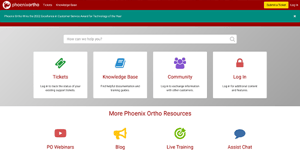The EHR market has transformed exponentially in the last thirty years. As many major vendors continue to grow and acquire smaller companies, the number of PM and/or EHR vendors has dwindled to approximately 500 currently. These acquisitions have created a smaller group of million- or even billion-dollar healthcare IT players.
When determining what EHR/PM system is best suited for your needs, understanding EHR growth strategies may seem unnecessary and unneeded. However, it can deliver valuable insight into how a vendor operates and what strategies may affect its customers long-term.
Below are the most common PM/EHR vendor opportunities for growth and how they impact the market—trickling down to even the end-customer level.
Quick Links:
- Should EHR Vendors be Primarily Focused on Growth?
- EHR Growth Strategies: Slow vs Rapid Growth
- Choosing a Vendor: Which Kind of EHR Growth Strategy Will Best Serve Your Practice’s Needs?
- Experience the Full Benefits of Your EHR System
Should EHR Vendors be Primarily Focused on Growth?
Known as Electronic Health Records, EHR software systems are a solution for recording patient information. EHR/PM software systems are especially helpful with organizing data into patient charts and logging treatment histories for future reference. They allow patient health information to be easily accessible and analyzed by providers across multiple healthcare organizations. Unlike EMRs (Electronic Medical Records), EHR/PM solutions are more comprehensive with the information they hold.
While EHR/PM solutions have been gaining traction due to their ability for providers and patients to quickly share their data, the COVID-19 pandemic has also highlighted the need for EHR solutions in modern healthcare. While many patients are reluctant to visit physician’s offices in person, EHR/PM systems allow providers and patients the ability to quickly connect for virtual medical encounters.
The need for EHR/PM solutions has been increasingly reflected in market growth. A new report predicts that the EHR market will witness its fastest growth over the next five years, growing 6% per year through 2025. Some estimates put the EHR market size to reach $10 billion by 2025 in the United States alone.
To keep up with the explosive market growth, all PM and/or EHR vendors must remain competitive. While the largest vendors or publicly traded vendors will continue product development and new sales, their primary focus must be on revenue growth, typically by acquisition. The vertical specialty vendor must remain focused on product development and new sales to meet the unique needs of their specialty.
EHR Growth Strategies: Slow vs Rapid Growth

As private practices and hospitals continue to adopt EHR systems, the EHR/PM landscape continues to witness a rapid growth transformation. To best understand EHR growth strategies, it’s key to group them into categories of either slow or rapid growth.
Organic, Slow, and Steady Growth
The original growth strategy for the EHR market, slow growth can be best described as organic. It takes years as smaller vendors slowly grow larger from product diversification. This growth strategy is typically used by focused specialty EHRs since it’s more feasible for vertical vendors to accomplish compared to rapid acquisition. The growth is slow and natural since the vendor is focused on the product and how it affects the users, rather than focusing on rapid market growth.
The two main strategies with organic growth are:
- Market and Sell natively-developed EHR/PM solutions to first-time buyers
- Market and Sell natively-developed EHR/PM solutions to replacement buyers
Organic growth strategies are typically the model of private companies, whereas public companies take a more aggressive growth approach (as you’ll learn below). While public companies have more access to large sums of capital-raising, private companies retain more control over their products and operations. In terms of the EHR market, vertical vendors with specific specialty-focused EHR/PM solutions use this method.
Rapid Growth: Acquisition
Acquisition as a growth strategy occurs when a larger or public company buys smaller vendors to be added into their own portfolio. Since competition is fierce in the EHR market, larger vendors with more financial resources can buy out and absorb weaker vendors, thereby consolidating the market and solidifying their market position.
While there may be benefits for the acquired company, their EHR/PM solutions will be absorbed by the merger—and this can affect the absorbed vendor’s existing customers. Since the EHR/PM acquisition process usually features reorganizations of power and support, consolidations can make it difficult for customers to receive the support they need for their services.
In some cases, the acquiring vendor may decide to discontinue the original EHR/PM services, including support. Vendors that go through changes also undergo a reassessment of company directions. This includes investments and products, which can include changes for the products and services customers rely on.
Rapid Growth: Cannibalization
Rapid growth can result in the cannibalization of products as well as companies. In terms of growth, cannibalization refers to a reduction in sales volume, revenue, and market share of one product as a result of the introduction of a new product by the same developer, in this case, the acquiring vendor.
When examining EHR/PM acquisitions, this may look like a multi-specialty vendor buying out a smaller, specialty-specific EHR/PM software service. The original EHR/PM software that was tailored to a specific healthcare specialty may be either slowly phased out or outright discontinued and migrated to the acquiring company's product.
This rapid growth strategy directly impacts customers of the original PM and/or EHR vendor. Those with the retired system may eventually need to migrate to the new EHR/PM system. This may include new license fees for the migration, as well as new training to learn the new system.
In addition to losing support for their original system, the new EHR/PM solution from the parent company may not be completely suited to the customer’s needs. For instance, an ophthalmology practice may have originally had an EHR/PM system tailored specifically for ophthalmologists. If the PM and/or EHR vendor was acquired by a larger multi-specialty vendor, then the practice may eventually have to migrate to an EHR/PM solution that was not designed for ophthalmology, as support for their old solution is discontinued.
Choosing a Vendor: Which Kind of EHR Growth Strategy Will Best Serve Your Practice’s Needs?
While from the outset EHR/PM growth strategies seem to be an issue that doesn’t impact at the customer level, they do indeed affect customers. When choosing an EHR/PM solution, medical practices and hospitals should look at the EHR/PM growth strategy of the vendor to determine how any long-term effects may affect their use of the software.
Mergers and acquisitions may be staples of the EHR market, but not all are keeping up with their promises. A recent study from the Harvard Business School found that many acquisitions do not lead to promised EHR integration. The report, which covered four years, found that only one-third of hospitals acquired in that period switched to the dominant vendor of their acquiring system. Over forty-four percent preferred to stay with their original EHR/PM system. However, this could lead to issues when the acquiring vendor phases out due to cannibalization, forcing hospitals and practices to adapt.
As more vendor consolidation is expected in the future, providers should choose their EHR/PM system wisely. If you’re a medical specialist or have an independent practice, then you may need a specialty-focused EHR/PM solution that meets your unique needs. Compare the effects—both short and long-term when selecting your new PM and/or EHR vendor.
Experience the Full Benefits of Your EHR System
While a generic EHR/pm system can work for general practices, using a system specifically designed for orthopedic clinics enhances the benefits of using EHR/PM software. Phoenix Ortho’s orthopedic-specific EHR/PM system can streamline your operations and help you deliver the most positive physician, clinic staff, AND patient experience possible.
Learn more about how your orthopedic practice can benefit from using Phoenix Ortho’s EHR/PM solution by reaching out to our team today. Or, sign up for a demo of Phoenix Ortho to see the orthopedic-specific difference for yourself.
Schedule a 1:1
Get in touch with Phoenix Ortho to learn more about how you can save time, money, and mouse clicks with an orthopedic-specific EHR.





